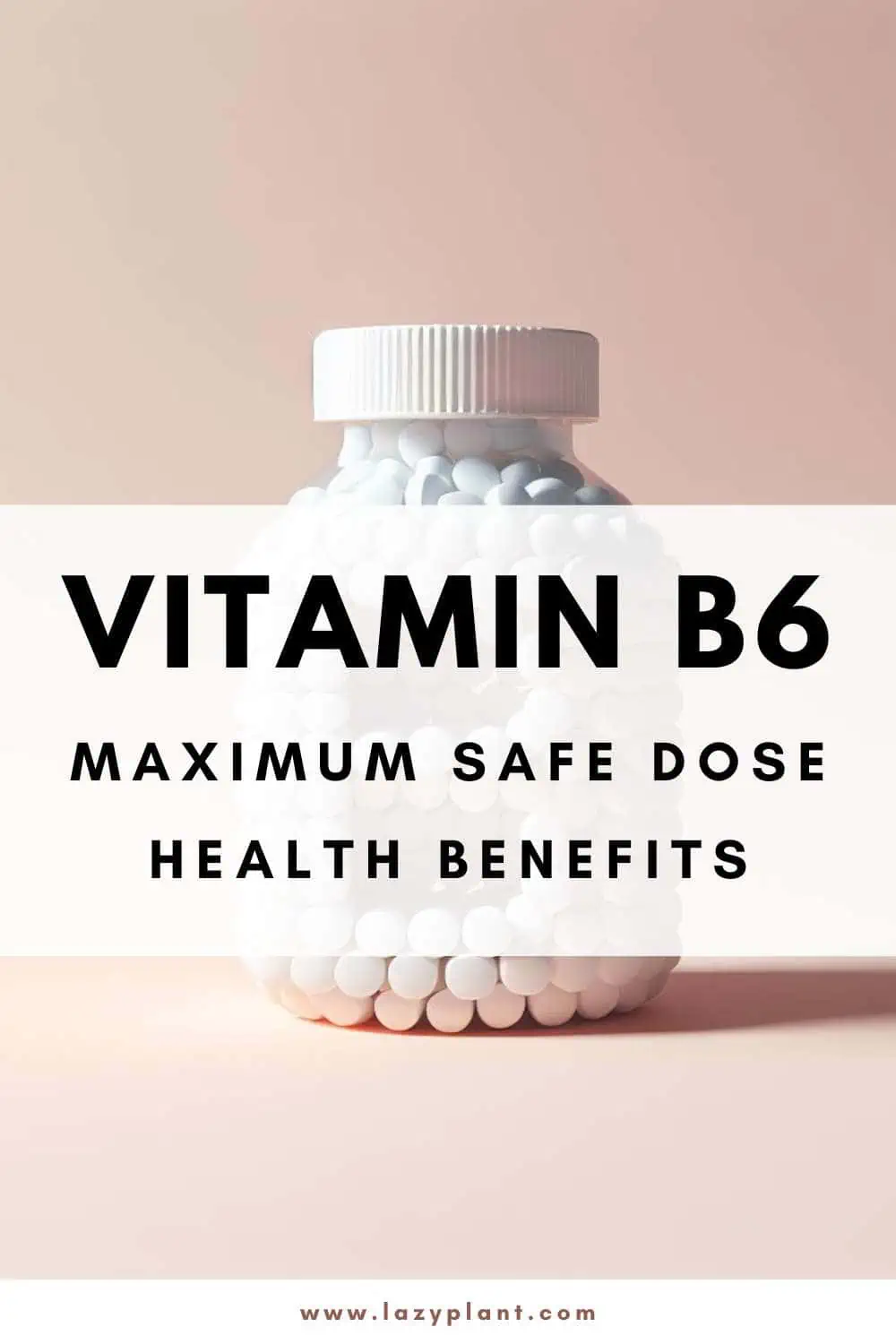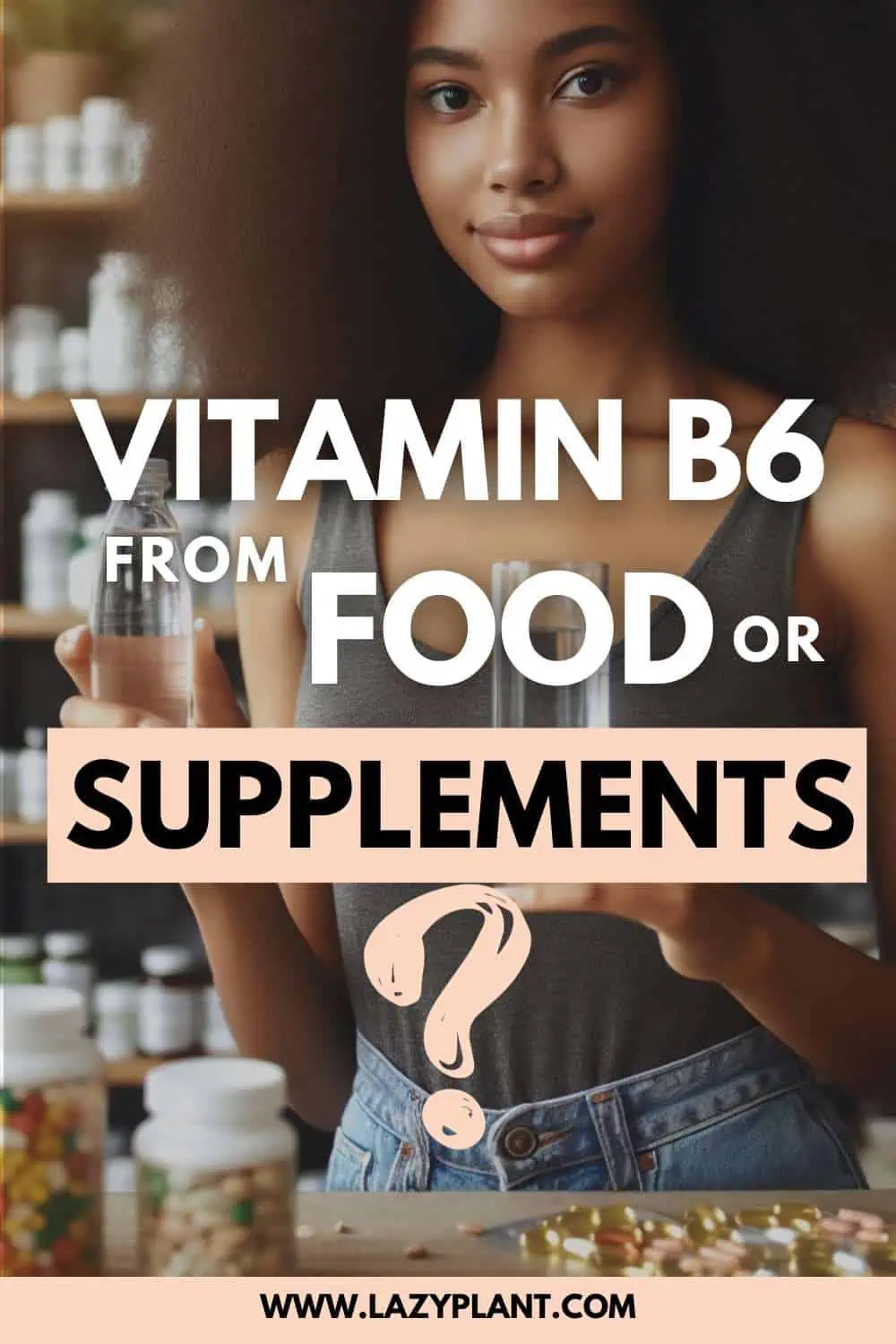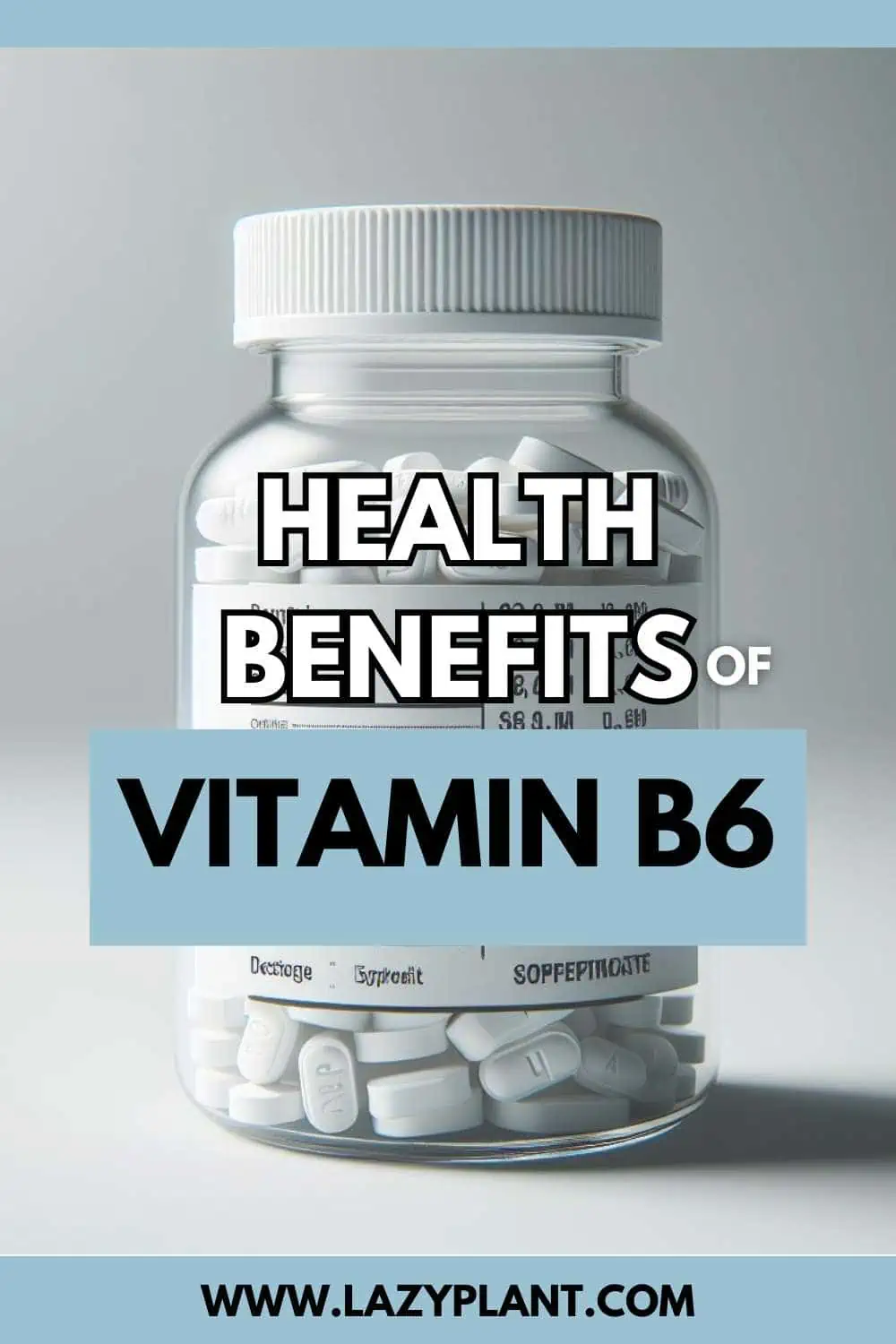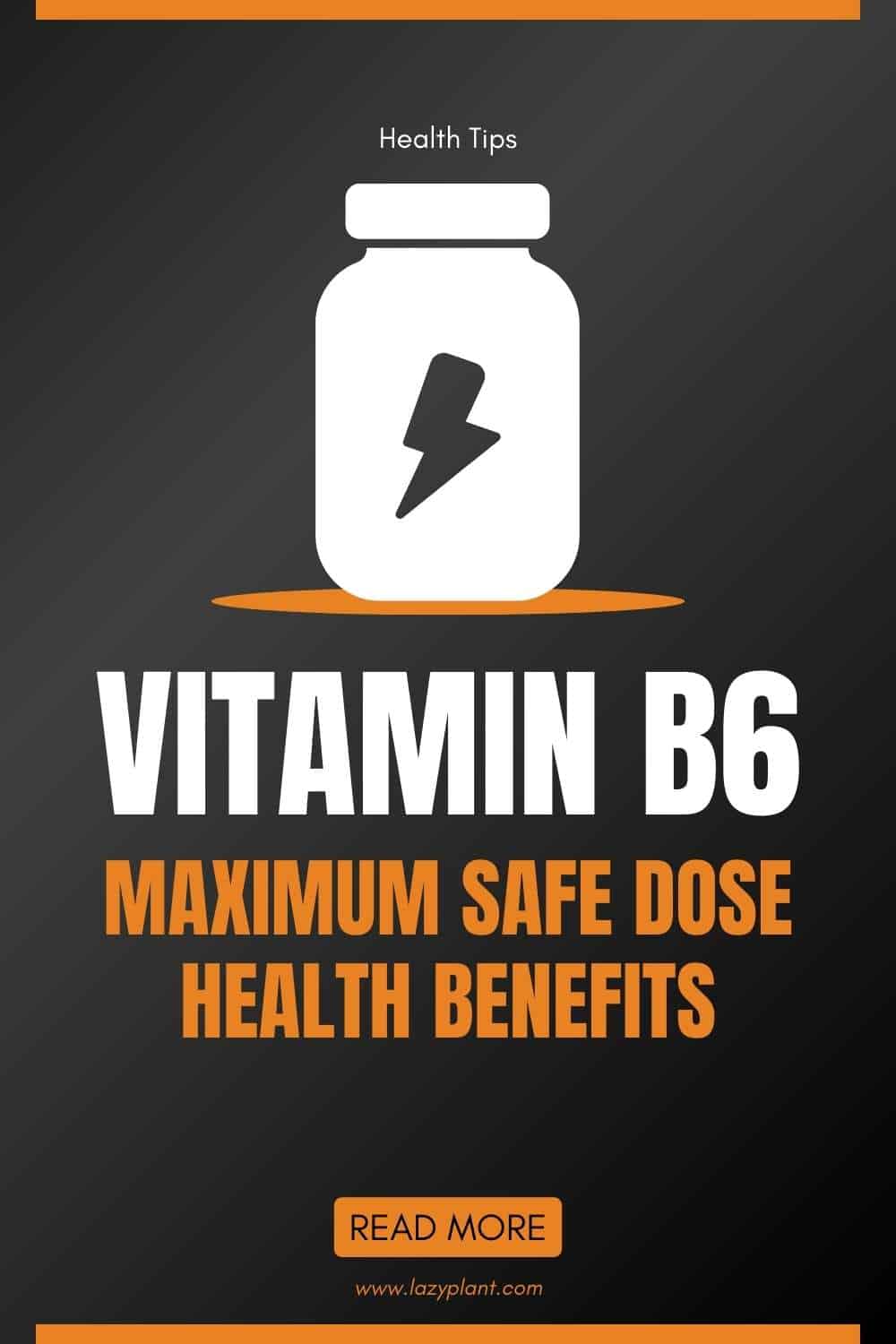The maximum safe dosage of vitamin B6 for adults is 100 mg while the recommended daily intake is less than 2 mg. Foods and multivitamin supplements can’t cause vitamin B6 toxicity or side effects, as they contain much lower doses.
Health benefits of vitamin B6
Vitamin B6 is a water-soluble vitamin. It’s also known as pyridoxine. Vitamin B6 is crucial for good health. It’s involved in more than 100 enzyme reactions, protein, carbohydrate, and fat metabolism.[1]
Also, vitamin B6, along with vitamin B2, folic acid, and vitamin B12, is essential for maintaining normal levels of homocysteine. Elevated homocysteine increases the risk of heart disease and stroke! Homocysteine is an amino acid that may promote the formation of blood clots and impair normal blood vessel function.[2]
Furthermore, as vitamin B6 can naturally lower homocysteine levels, it protects the brain. High levels of homocysteine have been linked to a decreased risk of dementia, Alzheimer’s disease, and cognitive decline.

Moreover, vitamin B6 boosts the immune system and is necessary for hemoglobin formation.
Additionally, according to epidemiological studies, high blood concentrations of vitamin B6 seem to lower the risk of all cancers. Especially, gastrointestinal cancers. It reduces oxidative stress and the spread of tumor cells. On the contrary, vitamin B6 deficiency may cause chronic inflammation.
Also, high doses of vitamin B6 may improve the symptoms of mild pregnancy-related nausea and morning sickness.
Although vitamin B6 has many health benefits, vitamin B6 supplementation may not be as effective as constantly getting high dosages of vitamin B6 through food.
What’s the recommended daily intake?
The recommended daily intake of vitamin B6 is 1.3 mg, both for adult men and women.
Elderly people have slightly higher vitamin B6 needs! Women older than 51 years require at least 1.5 mg, while men require 1.7 mg of vitamin B6 a day.
Pregnant and lactating women should get at least 1.9 mg and 2 mg of vitamin B6 a day, respectively.
What’s the maximum safe daily dose of vitamin B6 from supplements?
The maximum safe dosage of vitamin B6 is 100 mg. Both for adult men and women. Higher dosages are too much for healthy people.
Teenagers and children shouldn’t get more than 30-80 mg of vitamin B6 a day, though. The maximum safe dose depends on age.

The maximum safe dose of vitamin B6 for adults is 76 times higher than the recommended daily intake! Actually, the body absorbs high pharmacological doses of vitamin B6 pretty well. It easily excretes excess amounts in the urine.
Only people with health issues may require higher dosages than the maximum safe intake.
If you really need to boost your vitamin B6 intake, you can find a wide variety of supplements on iHerb. Vitamin B6 supplements contain between 25 and 250 mg of vitamin B6 per tablet.
However, in most cases, it’s better to take a multivitamin, containing only 2 mg of vitamin B6, which is almost the recommended daily intake.
Can I get too much vitamin B6 from food?
The Food and Nutrition Board has established the maximum safe dose of vitamin B6, both from food and supplements.
But, you can’t possibly get such extremely high doses of vitamin B6 from your diet. The richest foods in vitamin B6 are chickpeas, beef liver, chicken, turkey, salmon, tuna, potatoes, banana, and of course fortified cereals. The highest possible dose per serving is only 1.1 mg of vitamin B6.
Actually, high intakes of vitamin B6 from food sources have not been reported to cause any side effects.
Moreover, a diet rich in vitamin B6 could help you lose weight or maintain a healthy body weight.
Side effects of high dosages
Too much vitamin B6 may cause side effects, such as nausea, heartburn pain, and photosensitivity. Also, extremely high vitamin B6 doses of 1,000-6,000 mg for years may cause severe neuropathic adverse effects.
Hence, pharmaceutical doses should be taken only under medical supervision.

Do I need supplements with vitamin B6?
About 30% of the general population uses supplements containing vitamin B6. But, do we really need them?
In fact, healthy people who follow a well-balanced diet don’t need vitamin B6 supplements. They can get high doses from food.
Moreover, the absorption rate of vitamin B6 from food is pretty high. It’s similar to the absorption rates of dietary supplements.
Actually, most people in the United States consume the recommended daily intake of vitamin B6. According to studies, the average intake of vitamin B6 is about 1.5 mg in women and 2 mg in men.
People who follow a poor diet may have low levels of vitamin B6. But, they have low concentrations in many other vitamins as well. Isolated vitamin B6 deficiency is unlikely.
Actually, a well-balanced diet can provide adequate amounts of all B vitamins. Only vitamin B12 may be an exception! Thus, many people may benefit from taking supplements with vitamin B12.
On the other hand, people with health problems, such as severe obesity, rheumatoid arthritis, chronic renal insufficiency, celiac disease, Crohn’s disease, ulcerative colitis, and alcohol abuse may benefit from taking high dosages of vitamin B6, found only in supplements.

You should consult your healthcare provider before taking vitamin B6 or any other supplements.